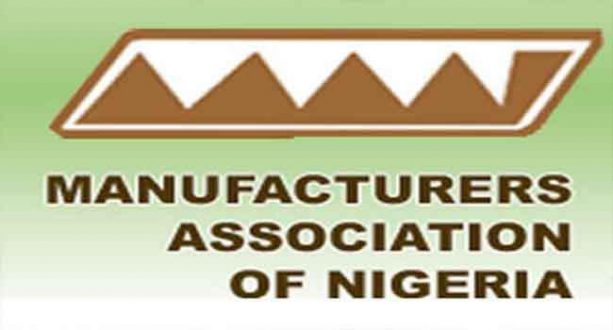The Manufacturers Association of Nigeria (MAN) says its members made donations worth N8 billion in cash and N300million worth of palliative materials to both Federal and States Governments during the outbreak of the COVID-19 pandemic.
Mr Mansur Ahmed, President of MAN, made this known at the 48th Annual General Meeting of the association on Thursday in Lagos.
Ahmed told newsmen that indicators revealed that the nation was not immune to the challenges as world manufacturing also experienced inconsistency in production growth, indicating an overall economic slowdown.
This, he explained, resulted in job losses, a decline in consumer demand, and a general deterioration in living standards.
READ ALSO: WHO, Africa CDC Launches ”Genome” Lab to Understand COVID-19
“On our part, we donated about N8 billion in cash and are sincerely grateful to our frontline health workers and other service providers for their commitments, sacrifice, and service to humanity.
“To this end, I sincerely appreciate members of MAN for their support to the government when it was most needed to provide palliative as a way to cushion hardship experienced by Nigerians and to contain the spread of COVID-19,” he said.
Ahmed said that the association remained resolute at continuously supporting its members to explore business expansion opportunities to navigate the current challenging times confronting the industry due to COVID-19.
This, he said, was in the areas of intra-trade facilitation, renewable energy, and local raw material sourcing amongst others.
On the current state of the Nigerian economy and the manufacturing sector, Ahmed said that the performance of the economy was fragile and slowly sliding into recession.
According to him, the association’s outlook for the first quarter of 2020 found maximum expression in the actual performance of economic indicators.
Economic activity in the year was disrupted by the spiral effects of the pandemic, he said.
Ahmed said that the consequence of this development was that sectoral groups ran short of supplies of raw materials due to disruptions in the global value chain, with many still unable to access forex.
“The manufacturing sector performance that was expected to be strong, having recorded an impressive performance in the 4th quarter of 2019 on account of border closure, suffered a huge setback.
“For Nigeria, the outcomes include lockdown, near shut down of the operations of eight manufacturing sectoral groups, disruption in the supply chain, inventory of unsold items, and loss of jobs.
“Arising from the scenario, the expectation is that inflation, interest and exchange rates, will jointly trend upward from their current states in the differing magnitude of between 15 per cent and 18 per cent.
“Also expected is that the rate of unemployment will double, reaching the 50 per cent mark for the first time in our history,” he said.
Ahmed commended the government for the initiative toward unifying foreign exchange windows in the country.
He urged the Central Bank of Nigeria (CBN) to ensure a properly managed transition regime to reduce the effect on the manufacturing sector.
“The burden of foreign currency-denominated loans and offsetting of existing credit commitments to foreign suppliers of raw materials should be given priority consideration.
“It is our conviction that the foreign exchange unification initiative will engender a regime of balanced participation for forex users and promote a transparent, as well as efficient allocation of forex required for sustained economic growth,” he said.
Ahmed also said that data and research by the association revealed that the sector still needed a comprehensive and integrated support system from the government.
He advocated for a reduction in the financial pressure on companies occasioned by COVID-19.
Ahmed called for the support of manufacturers’ concern with existing loan facilities, by reviewing the terms and reducing interest rates to 5 per cent with two years moratorium.
“Manufacturers that are investing in order to scale up production, should be granted loans at 5 per cent interest rate for a period of five to seven years.
“These will no doubt improve liquidity and ramp up productivity in the manufacturing sector in a manner that will cover up for obvious losses due to COVID-19,” he said.
Ahmed also urged the government to direct all regulatory agencies to reduce their respective administrative charges (Pre-COVID-19 rates) payable by manufacturing concerns by 50 per cent.

